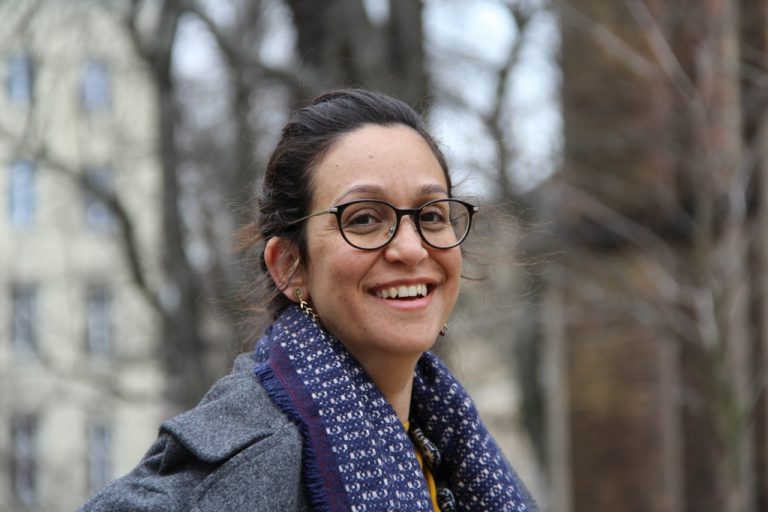
The Cognitive Science Colloquium series is the most attended event of our department, hosting monthly talks by world-renowned experts in various fields of cognitive science, including neuroscience, psychology, linguistics, philosophy and anthropology.
2024-2025 PROGRAM
 October 15, 2024
October 15, 2024
Sam Gilbert (UCL, UK): "Outsourcing memory to the external environment: Cognitive offloading, value-based decision making, and metacognition"
This talk will summarise a line of experimental work, both laboratory-based and naturalistic, investigating how people use external tools and reminders to help them remember. The key questions are: 1) how do people decide between storing information in internal memory or external reminders; 2) how does this process change across the lifespan; 3) how does it relate to underlying brain activity; and 4) what are the downstream consequences for memory? I will argue that cognitive offloading is experimentally tractable and guided by metacognitive processes. Computational modelling suggests that it can also be seen as a form of value-based decision making. These results suggest real-world interventions that could improve people’s adaptive use of cognitive tools.
 November 19, 2024
November 19, 2024
Dean Mobbs (California Institute of Technology, USA)
 December 10, 2024
December 10, 2024
Giorgio Vallortigara (Università Di Trento, Italy) : "The cognitive neurobiology of numerousness"
What underlies the ability to deal with numbers and where did it come from? It has been hypothesized that our ability to accurately represent the number of objects in a set (numerousness), and to carry out numerical comparisons and arithmetic, developed from an evolutionarily conserved system for approximating numerical magnitude. Non-symbolic number cognition based on an approximate sense of magnitude has been documented in a variety of species. However, we know little about its origins (i.e., to what extent experience would shape it) and of its neural and molecular bases. To address the first issue we performed single cell recordings in awake young domestic chicks. We found neurons selective to number in the caudal nidopallium (a higher associative area with functional similarities to the mammalian prefrontal cortex), which suggest that an approximate sense of magnitude can be an inborn feature in the avian brain. To address the issue of circuitry and molecular bases of the sense of magnitude we made use of zebrafish, that in recent years became established as ideal developmental and behavioral genetic model system. Using a combination of early gene expression and in-situ hybridization we identified for the first time a small region in the caudal part of the dorso-central division of the zebrafish pallium that shows selective activation upon change in numerousness of visual stimuli. As pallial regions are implicated in number cognition in mammals and birds, these findings support the existence of an evolutionarily conserved system for approximating magnitudes and provide an avenue for exploring its underlying molecular and genetic correlates.
Giorgio Vallortigara is Professor of Neuroscience and Director of the Animal Cognition and Neuroscience Laboratory at the Centre for Mind/Brain Sciences of the University of Trento, Italy.
Among his research interest is the study of brain and behavioural asymmetries in a comparative and evolutionary perspective. He first discovered functional brain asymmetry in fish and amphibians. He also studied the mechanisms underlying the use of geometry in spatial navigation and the origins of number and object cognition in the animal brain. Professor Vallortigara’s most recent work has focused also on the investigation of brain asymmetry and numerical cognition in insects.
On these topics he has published more than 400 refereed papers, that have received more than 30,000 citations overall (h-index=96; source Google Scholar). He has contributed also to several books chapters, and is the author with L.J. Rogers and R.J. Andrew of the monograph “Divided Brains” (Cambridge University Press, 2013). He recently published the books “Born Knowing”by MIT Press (2021) and “The Origins of Consciousness” by Routledge (2024). His work has been rated several times in the Faculty of 1000 Biology and widely described in general science books of animal behaviour, cognitive science and neuroscience. He has been the recipient of several honors and prizes, including, among others, two ERC Advanced Grants, the Geoffrey de St. Hilaire Prize for Ethology, and a doctorate honoris causa from the University of Ruhr in Germany.
 February 11, 2025
February 11, 2025
Martin Giurfa (Sorbonne University, France)
 March 4, 2025
March 4, 2025
Ali Boyle (The London School of Economics and Political Science)
 April 8, 2025
April 8, 2025
Karl Gegenfurtner (Giessen university, Germany)
 May 27, 2025
May 27, 2025
Smadar Ovadia-Caro (University of Haifa)
 June 3rd, 2025
June 3rd, 2025
Mackenzie Mathis (Brain Mind Institute & Neuro X Institute, École Polytechnique Fédérale de Lausanne, Geneva, Switzerland) : "Changing neural dynamics during motor learning"
The neural activity of the brain is intimately coupled to the dynamics of the body. Yet how our hierarchical sensorimotor system dynamically orchestrates the generation of movement while adapting to incoming sensory information remains unclear. To tackle this question, we have developed a series of deep learning tools that have enabled us to measure 3D kinematics and jointly model neural and behavioral dynamics. In this talk, I will briefly discuss these tools and then show how our lab uses them to dissect the neural contributions to motor control and learning. Specifically, we developed joystick-based tasks for mice where they must learn to rapidly adapt to changes in the environment. Using large-scale 2P-imaging in the cortex, we find functional grouping of neurons that have specific computational motifs that act as a substrate for learning.
 June 17, 2025
June 17, 2025
Natalie Boll-Avetisyan (University of Potsdam)

